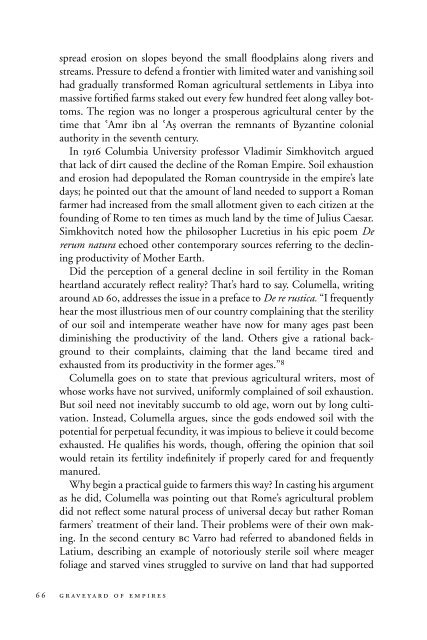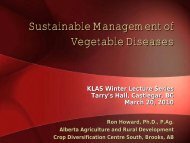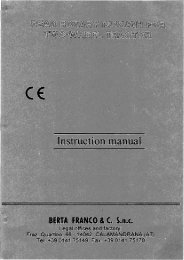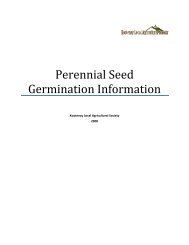Dirt: The Erosion of Civilizations - Kootenay Local Agricultural Society
Dirt: The Erosion of Civilizations - Kootenay Local Agricultural Society
Dirt: The Erosion of Civilizations - Kootenay Local Agricultural Society
You also want an ePaper? Increase the reach of your titles
YUMPU automatically turns print PDFs into web optimized ePapers that Google loves.
66<br />
spread erosion on slopes beyond the small floodplains along rivers and<br />
streams. Pressure to defend a frontier with limited water and vanishing soil<br />
had gradually transformed Roman agricultural settlements in Libya into<br />
massive fortified farms staked out every few hundred feet along valley bottoms.<br />
<strong>The</strong> region was no longer a prosperous agricultural center by the<br />
time that Amr ibn al As. overran the remnants <strong>of</strong> Byzantine colonial<br />
authority in the seventh century.<br />
In 1916 Columbia University pr<strong>of</strong>essor Vladimir Simkhovitch argued<br />
that lack <strong>of</strong> dirt caused the decline <strong>of</strong> the Roman Empire. Soil exhaustion<br />
and erosion had depopulated the Roman countryside in the empire’s late<br />
days; he pointed out that the amount <strong>of</strong> land needed to support a Roman<br />
farmer had increased from the small allotment given to each citizen at the<br />
founding <strong>of</strong> Rome to ten times as much land by the time <strong>of</strong> Julius Caesar.<br />
Simkhovitch noted how the philosopher Lucretius in his epic poem De<br />
rerum natura echoed other contemporary sources referring to the declining<br />
productivity <strong>of</strong> Mother Earth.<br />
Did the perception <strong>of</strong> a general decline in soil fertility in the Roman<br />
heartland accurately reflect reality? That’s hard to say. Columella, writing<br />
around ad 60, addresses the issue in a preface to De re rustica. “I frequently<br />
hear the most illustrious men <strong>of</strong> our country complaining that the sterility<br />
<strong>of</strong> our soil and intemperate weather have now for many ages past been<br />
diminishing the productivity <strong>of</strong> the land. Others give a rational background<br />
to their complaints, claiming that the land became tired and<br />
exhausted from its productivity in the former ages.” 8<br />
Columella goes on to state that previous agricultural writers, most <strong>of</strong><br />
whose works have not survived, uniformly complained <strong>of</strong> soil exhaustion.<br />
But soil need not inevitably succumb to old age, worn out by long cultivation.<br />
Instead, Columella argues, since the gods endowed soil with the<br />
potential for perpetual fecundity, it was impious to believe it could become<br />
exhausted. He qualifies his words, though, <strong>of</strong>fering the opinion that soil<br />
would retain its fertility indefinitely if properly cared for and frequently<br />
manured.<br />
Why begin a practical guide to farmers this way? In casting his argument<br />
as he did, Columella was pointing out that Rome’s agricultural problem<br />
did not reflect some natural process <strong>of</strong> universal decay but rather Roman<br />
farmers’ treatment <strong>of</strong> their land. <strong>The</strong>ir problems were <strong>of</strong> their own making.<br />
In the second century bc Varro had referred to abandoned fields in<br />
Latium, describing an example <strong>of</strong> notoriously sterile soil where meager<br />
foliage and starved vines struggled to survive on land that had supported<br />
graveyard <strong>of</strong> empires






